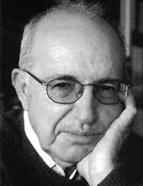

When preparations for the Peniche prison escape were made in January 1960, Borges Coelho agreed to participate on the condition that he could resume his life dedicated to studying and research, even if it meant doing so abroad. He refused to take on a role as a clandestine member of the PCP. He was released two and a half years later, having suffered harsher prison conditions and having had his notes and writings confiscated. Coelho managed to bring his notes with him, which enabled him to begin publishing his work soon after. In fact, while still in prison in 1961–62, he had resumed his Historical-Philosophical degree, which he completed in 1967 with his thesis Leibnitz, o homem , a teoria e a ciência [Leibnitz : the Man, the Theory and the Science ]. Over the years, he struggled to secure a stable job, primarily working as a tutor, translator, and journalist.
While completing his degree, he published two cornerstones of his historiographical work: Raízes da Expansão Portuguesa [Roots of Portuguese Expansion], in 1964 and A Revolução de 1383 [The Revolution of 1383], in 1965. Raízes da Expansão Portuguesa was quickly banned, and Borges Coelho was interrogated by the PIDE. He was accused of defaming national history, slandering heroes and saints, and damaging Portugal's international image. These two works reflected ideas that had been brewing in secret conversations and debates at Peniche prison, particularly with Álvaro Cunhal. It was as if it were a cherished research project — the analysis of the historical period from the Revolution of 1383 to the establishment of the Cape Route. They explored the transition from feudalism to capitalism in Portugal, in parallel with the international debate that was taking place on the topic, especially between Maurice Dobb and Paul Sweezy.
